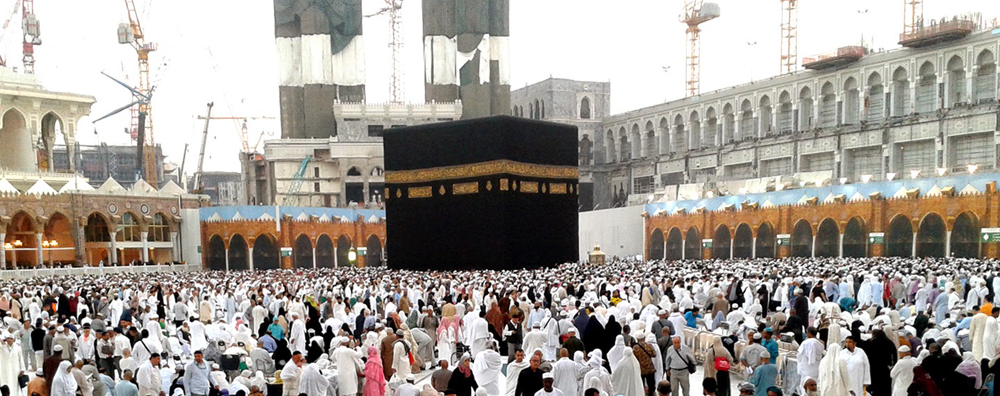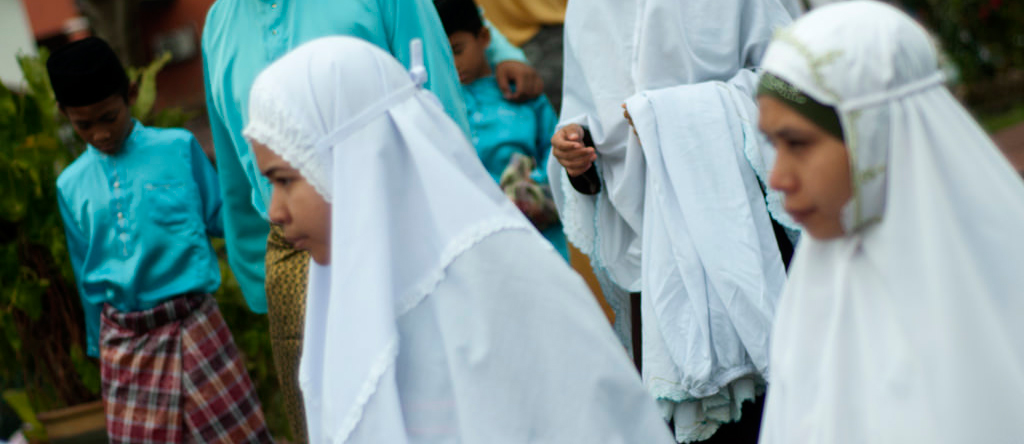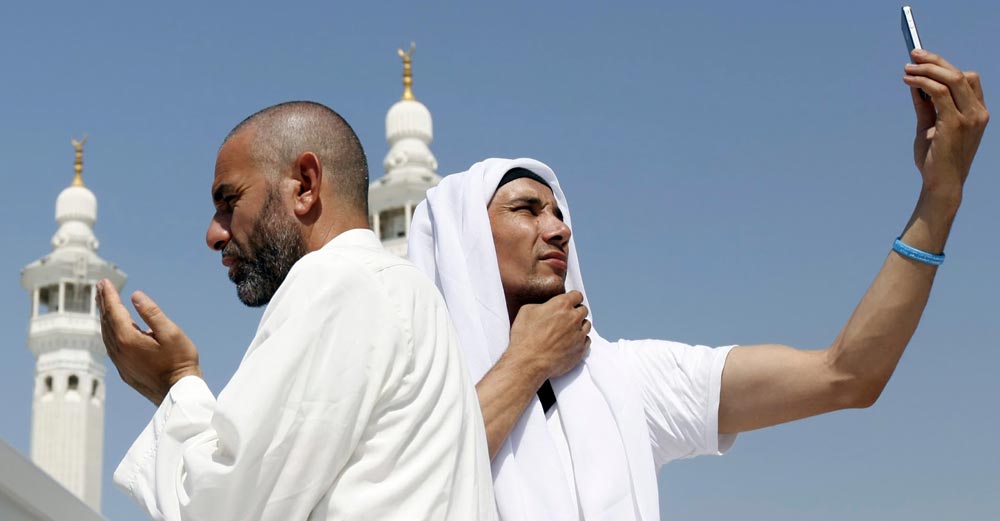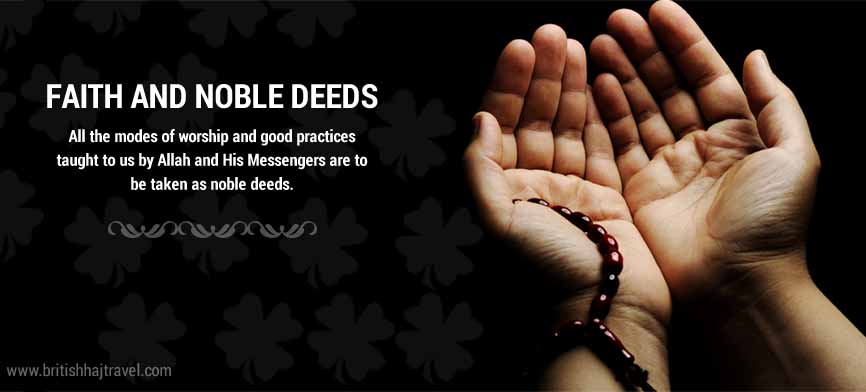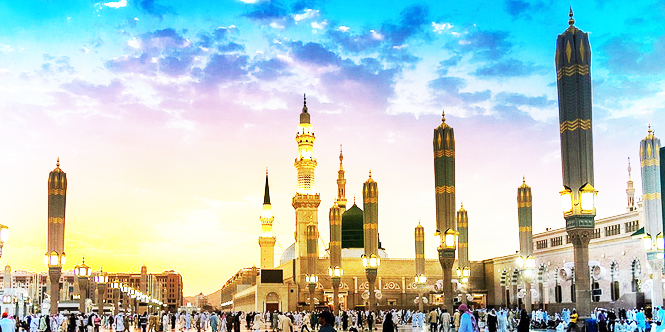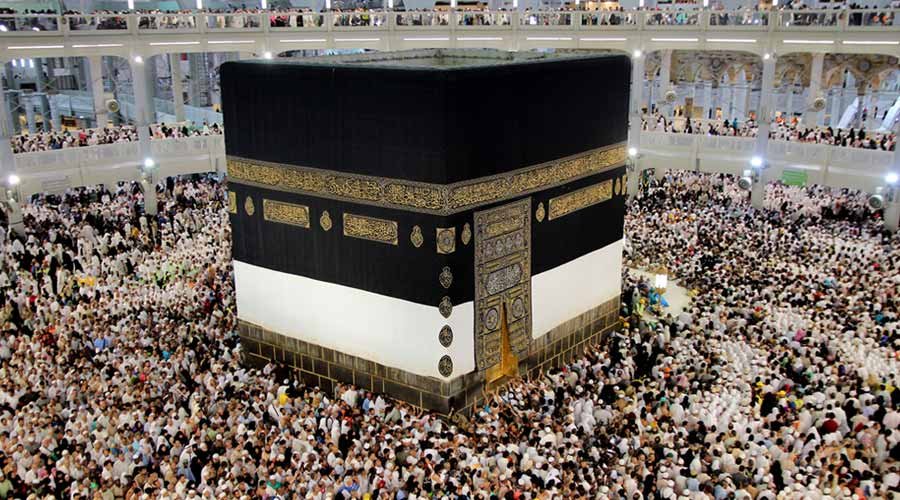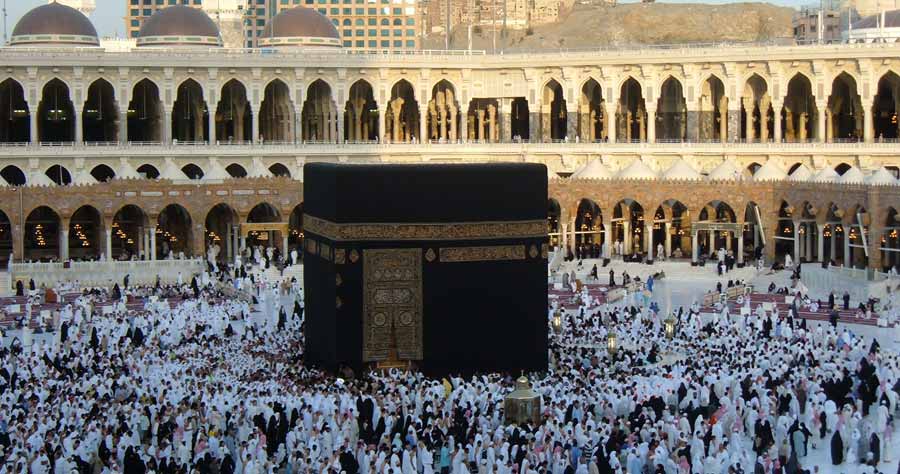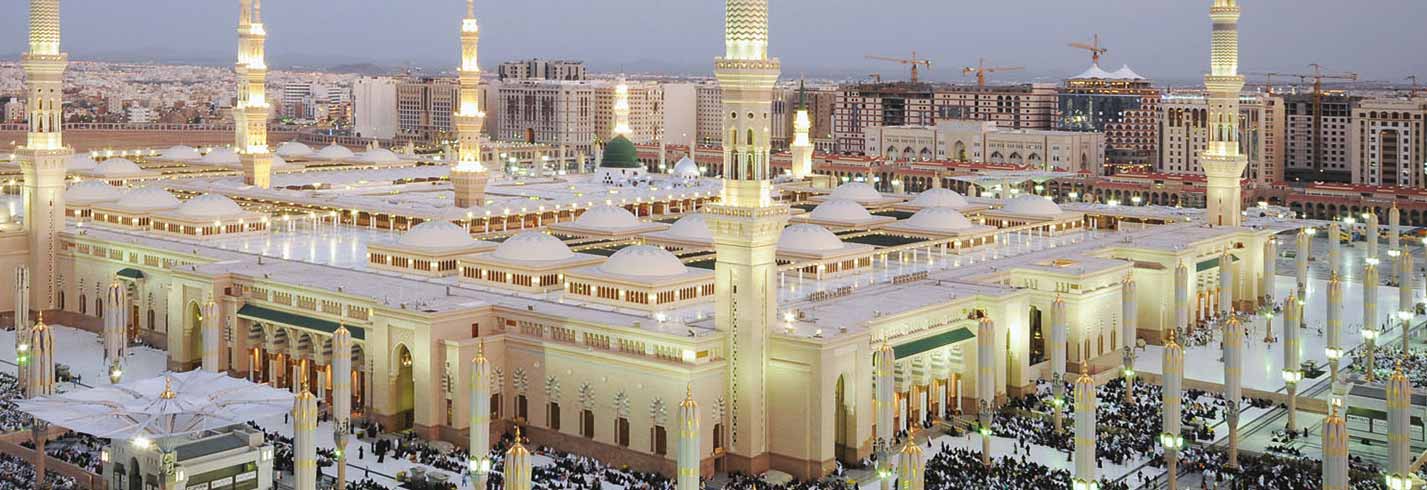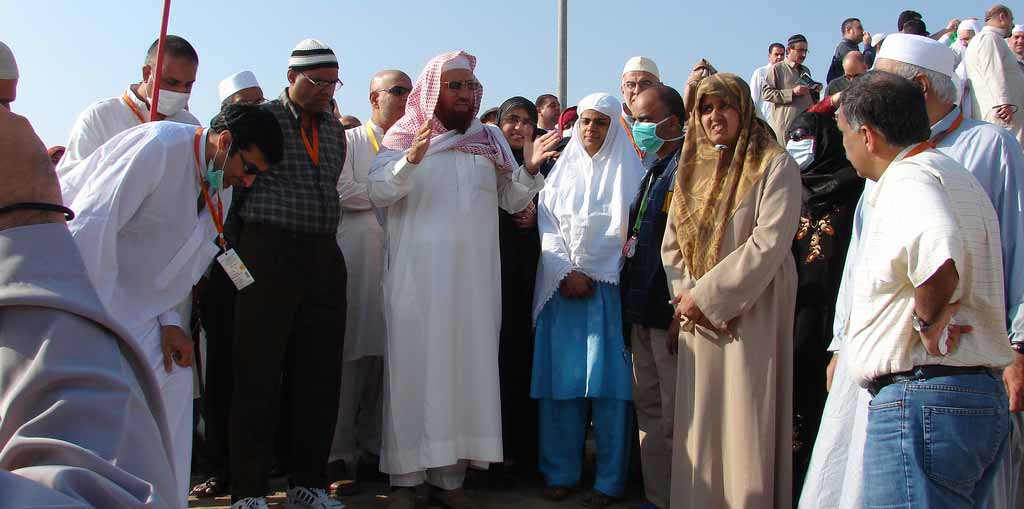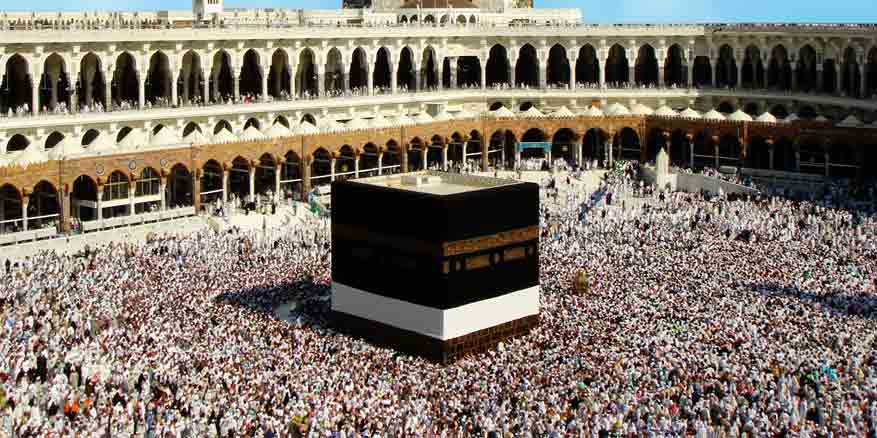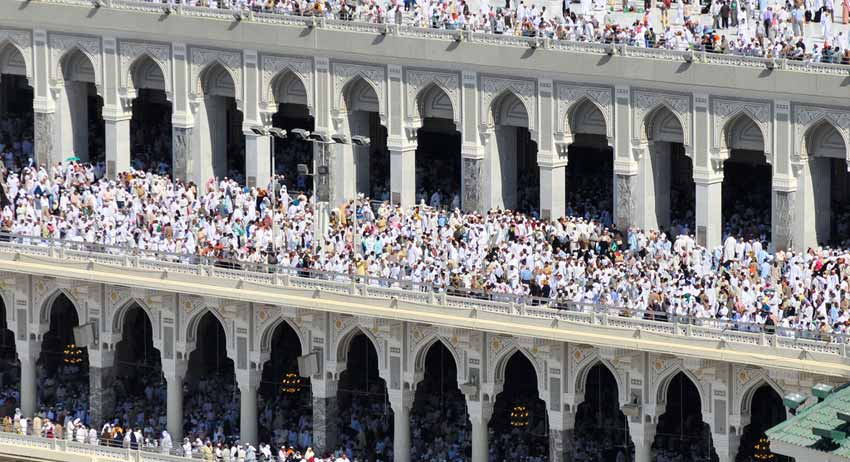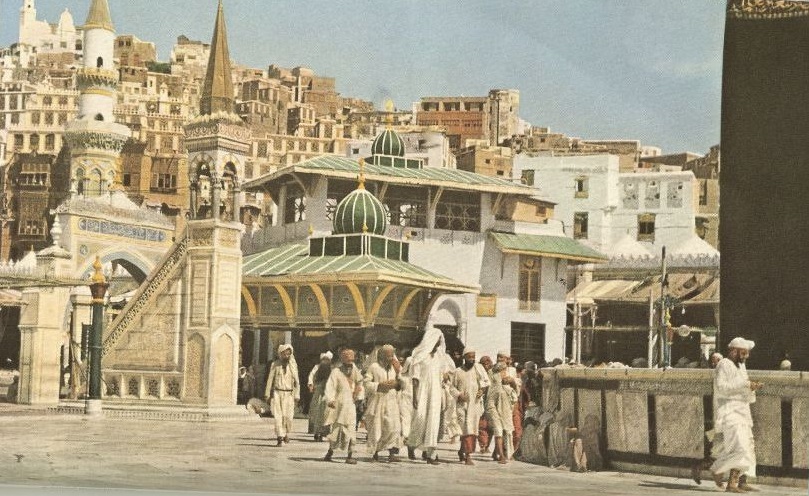Hajj: The Global Conference of the Ummah
We are all familiar with global summits and conferences during which presidents and other heads of state meet. Besides, foreign ministers, ministers of defense or others meet during other conferences. In the professional context, there are conferences for physicians, others for engineers and the same for other professions. For each of these conferences, there are authorities that organize them, call for them, determine their places and organize their programs.
Hajj is a great and unique global conference for the Muslim nation, and if the nation of Islam realizes and benefits from its merits and goals, its state would be better than it is nowadays.
The invitation to this great conference came from Allaah The Almighty to His Prophet Ibraaheem, the intimate friend of Allaah may Allaah exalt his mention. Allaah The Exalted Says (what means): {And proclaim to the people the Hajj [pilgrimage]; they will come to you on foot and on every lean camel; they will come from every distant pass.} [Quran 22:27] It is a historic and genuine invitation that is not renewed or revoked. The permanent place of holding the conference that never changes is the Sacred House of Allaah and its holy environs that combine divine blessing, historic antiqueness and religious sanctity. The agenda with all the words and deeds contained therein is dictated by virtue of the Order of Allaah The Almighty to Muhammad the Messenger of Allaah, sallallaahu `alayhi wa sallam ( may Allaah exalt his mention ) who said: “Learn your rituals from me (by seeing me performing them).”The people invited to this conference are Muslims, whether rulers or ruled, rich or poor, men or women, with no conditions or privileges other than Islam. The only qualification is to be a Muslim –and that is it.
As a result, this conference has been held periodically for thousands of years in the sacred sites. You can see the entire nation of Islam represented in it in various categories such as its rulers, scholars, common masses, leaders, soldiers, men, women, elderly and youth. Can a conference like this be without benefits or impact?
It is a question that should be on the mind of every Muslim and every pilgrim in order to meditate and reflect, then to benefit and work. The following are some reflections on the great conference of Hajj:
- Every pilgrim travels long distances and crosses many borders. Some pilgrims come from the countries of disbelief or countries of oppression and suppression. All of them strive and suffer in order to reach the sacred sites and participate in the gathering. By crossing all the barriers and overcoming all the difficulties, they declare that the superiority of faith is greater, the caller towards Allaah The Almighty is worthier of being answered, the path of Islam is straighter and that the brothers of faith are nobler.
- Its unique uniform distinguishes this conference, which is not a condition in other conferences. The pilgrim abandons his ordinary clothes and adornment and devotes himself to Allaah The Almighty. In this way, he declares that this world is not in his heart, that his value lies in the essence not the appearance. He testifies that if the caller to Allaah The Almighty calls and he hears the call to worship, the whole world with its adornments will never act as a barrier in his way; rather, he is ready to relinquish it for the Sake of Allaah The Almighty.
- This conference reminds the nation to remove all the matters that divide it and to hold firm to the Islamic divine methodology and path. When they make Tawaaf around the honorable Ka‘bah, they declare this important principle that makes humble submissive worship to Allaah The Almighty and a continuous relationship with Allaah The Almighty the center of their lives.
- This conference is an opportunity for setting the general policies of the nation, discussing problems, guiding and instructing through sermons in the season of Hajj , just like the comprehensive and all-inclusive Prophetic sermon in the Farewell Hajj.
Finally, Hajj is the season of practically demonstrating the unity of the Islamic nation where differences such as color, race and language dissolve. This unity is with respect to destination and intention, acts and deeds, dress and shape, and standing and movement. In addition, it unites the souls and strengthens ties along with the fulfilling a much greater purpose, which is linking the nation to its Creator, following His Sharee‘ah (Islamic law), elevating the Islamic standards and abolishing worldly criteria.
Does the Muslim nation realize the importance of these meanings and others? Do individual Muslims know these landmarks? There should be an initiative by the responsible leaders, pious scholars and all Muslims to achieve, along with fulfilling the obligation, the major benefits for the nation that is now suffering woes, defeat and division. Allaah The Almighty Says (what means): {And [mention, O Muhammad], when We Designated for Ibraaheem (Abraham) the site of the House, [saying], “Do not associate anything with Me and purify My House for those who perform Tawaaf and those who stand [in prayer] and those who bow and prostrate. And proclaim to the people the Hajj [pilgrimage]; they will come to you on foot and on every lean camel; they will come from every distant pass – That they may witness benefits for themselves and mention the Name of Allaah on known days.} [Quran 22:26-28]
Umrah Packages | Hajj Packages | Ramadan Umrah Packages | December Umrah Packages
Article by: www.islamweb.net
